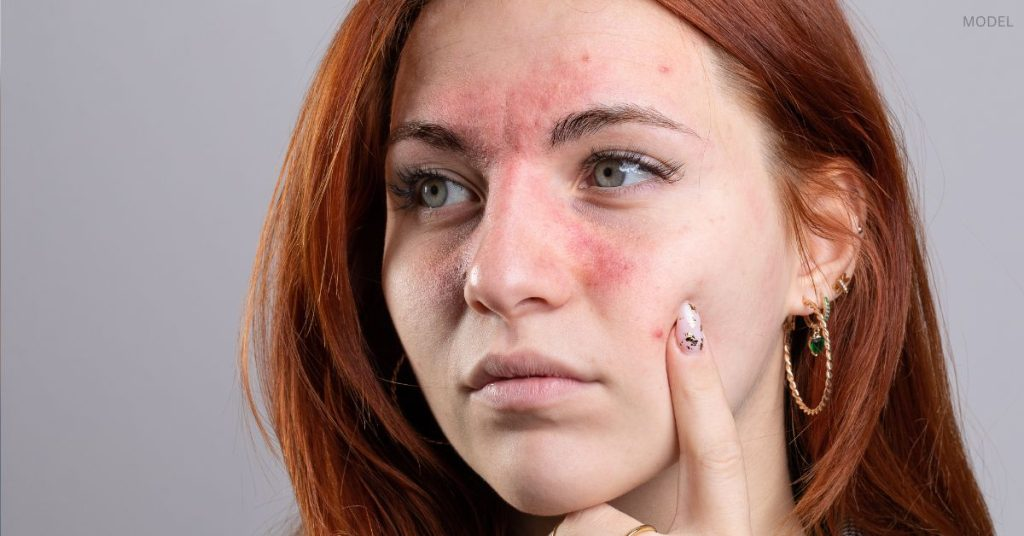Rosacea Treatment in Dubai is a common yet often misunderstood skin condition that affects millions of people worldwide. Characterized by facial redness, visible blood vessels, and, in some cases, small, red bumps, rosacea can have a profound impact on one’s self-esteem and quality of life. While there is no cure for rosacea, various gentle treatments can help manage its symptoms effectively. In this article, we will explore cost-free methods to alleviate rosacea symptoms and improve your skin's appearance.
Understanding Rosacea
Rosacea typically manifests in adults between the ages of 30 and 60, though it can occur at any age. It primarily affects fair-skinned individuals and tends to flare up in response to triggers such as stress, spicy foods, alcohol, and temperature changes. The condition can also be aggravated by certain skincare products, making it crucial to adopt a gentle skincare routine.

Symptoms of Rosacea
The symptoms of rosacea can vary from person to person but generally include:
Facial Redness: Persistent redness in the central part of the face, including the nose, cheeks, forehead, and chin.
Visible Blood Vessels: Small blood vessels that become enlarged and appear on the surface of the skin.
Bumps and Pimples: Red or pus-filled bumps that resemble acne.
Dryness and Flaking: Some individuals experience dry, irritated patches on their skin.
Burning or Stinging Sensations: Affected areas may feel warm or tender.
Recognizing these symptoms is the first step toward effective management.
Gentle Treatments for Rosacea
While rosacea can be challenging, there are several gentle, cost-free treatments you can implement to help manage the condition:
1. Identify and Avoid Triggers
One of the most effective ways to manage rosacea is to identify and avoid triggers that can cause flare-ups. Common triggers include:
Dietary Choices: Spicy foods, hot beverages, alcohol, and caffeine can all exacerbate symptoms. Keeping a food diary can help pinpoint specific dietary triggers.
Environmental Factors: Extreme temperatures, sun exposure, and wind can provoke flare-ups. Wear protective clothing and apply sunscreen daily.
Stress: Emotional stress is a known trigger for many individuals with rosacea. Incorporating relaxation techniques such as meditation, deep breathing, or yoga can be beneficial.
2. Maintain a Gentle Skincare Routine
A gentle skincare routine is vital for managing rosacea. Follow these steps for optimal skin health:
Cleanse Wisely: Use a mild, fragrance-free cleanser to avoid irritation. Wash your face with lukewarm water, as hot water can aggravate the skin.
Moisturize Regularly: Keeping the skin hydrated is essential. Choose a hypoallergenic moisturizer free of irritants, and apply it daily to maintain moisture balance.
Sunscreen Protection: Daily application of a broad-spectrum sunscreen with at least SPF 30 is crucial. Sun exposure can worsen rosacea, so wearing sunscreen, even on cloudy days, is necessary.
3. Natural Remedies
Several natural remedies may provide relief from rosacea symptoms:
Green Tea: Rich in antioxidants, green tea can help reduce inflammation. Apply cooled green tea bags to affected areas for about 10-15 minutes or use skincare products containing green tea extracts.
Aloe Vera: Known for its soothing properties, aloe vera gel can help calm irritated skin. Apply pure aloe vera gel directly to the affected areas for a cooling effect.
Chamomile: Chamomile has anti-inflammatory properties that can help alleviate redness. Brew chamomile tea, let it cool, and use it as a compress on your face.
4. Lifestyle Changes
Implementing certain lifestyle changes can also contribute to better rosacea management:
Hydrate: Drink plenty of water to keep your skin hydrated from within. Staying well-hydrated can improve your skin's overall appearance.
Limit Alcohol and Caffeine: Both substances can trigger rosacea flare-ups. Try to reduce or eliminate these from your diet to see if symptoms improve.
Sleep Well: Lack of sleep can exacerbate stress and skin issues. Aim for 7-9 hours of quality sleep each night to support your skin's health.
5. Seek Support
Living with rosacea can be emotionally challenging. Consider joining a support group or online community where you can connect with others who share similar experiences. Sharing tips, advice, and coping strategies can be invaluable in managing the condition.
When to Consult a Professional
While these gentle treatments can help manage rosacea symptoms effectively, it is important to consult a dermatologist if your condition worsens or fails to improve. A healthcare professional can provide tailored advice and may suggest topical or oral medications if necessary.
Conclusion
Rosacea can be a frustrating condition to manage, but adopting a gentle and cost-free approach can lead to significant improvements. By understanding your triggers, maintaining a consistent skincare routine, and making lifestyle changes, you can effectively manage your rosacea symptoms and enjoy healthier, more radiant skin. Remember, patience and consistency are key, and seeking support from healthcare professionals or communities can also make a difference in your journey toward clearer skin. Say goodbye to rosacea and embrace a more confident you!
